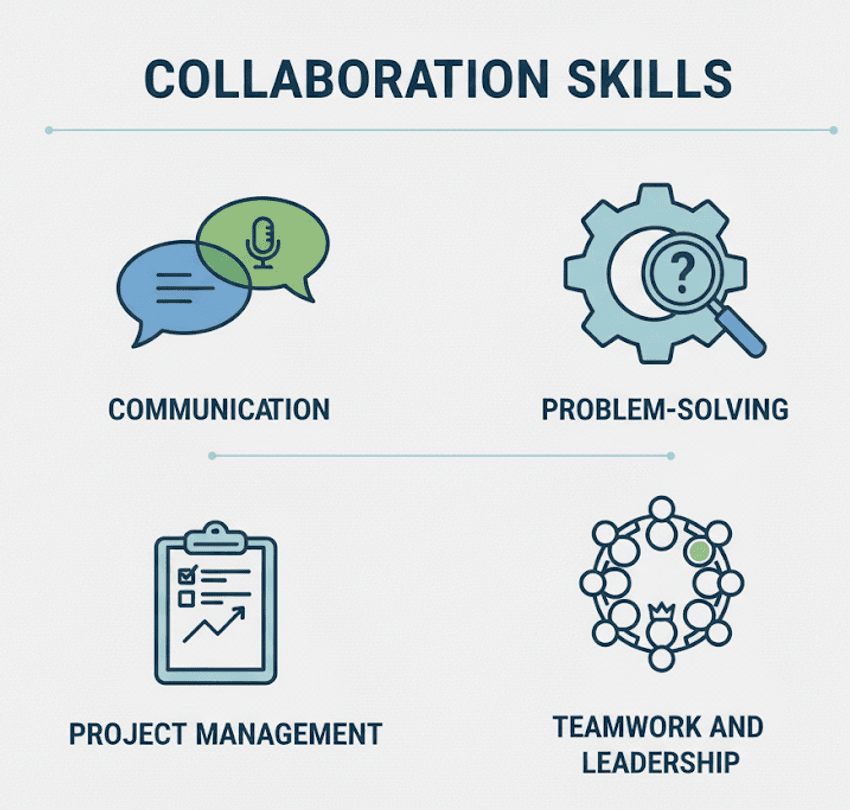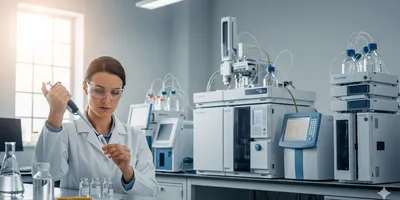In the dynamic and ever-evolving field of laboratory science, the role of the analytical chemist is more critical than ever. As technology advances and new challenges emerge, staying at the forefront requires more than just a foundational degree. Continuous analytical chemistry training is not merely a professional requirement; it is the cornerstone of a successful and impactful career. This article serves as a comprehensive guide for laboratory professionals, exploring the key areas of chemist skills and professional development that are essential for excelling in today's demanding lab environment.
From mastering complex instrumentation to interpreting intricate data and collaborating effectively with cross-functional teams, the modern analytical chemist must possess a diverse and adaptive skill set. This guide delves into the core components of effective lab training and outlines a clear path for technical and personal growth. Whether you are a recent graduate or a seasoned veteran, understanding these principles will help you navigate the complexities of your role and contribute to the highest standards of scientific rigor and innovation.
Foundational Analytical Chemistry Training: Core Principles and Methods
At the heart of every analytical chemist's expertise lies a deep understanding of fundamental principles. While automation and software can streamline processes, a chemist's ability to troubleshoot, innovate, and ensure data integrity is rooted in their grasp of core concepts. Effective analytical chemistry training begins with reinforcing these principles.
- Sample Preparation and Handling: The quality of analytical data is directly tied to the quality of the sample. Training in this area goes beyond simple pipetting to include an understanding of matrix effects, preservation techniques, and the nuances of solid-phase extraction, liquid-liquid extraction, and derivatization.
- Separation Science: Proficiency in chromatography (Gas Chromatography, High-Performance Liquid Chromatography) and electrophoresis is non-negotiable. It's not enough to run a method; a skilled chemist must understand the thermodynamics and kinetics of separation, column chemistry, and how to optimize mobile phases to achieve superior resolution and sensitivity.
- Spectroscopic Techniques: Mastery of techniques such as UV-Vis, IR, Mass Spectrometry (MS), and Nuclear Magnetic Resonance (NMR) is a key part of technical training. Understanding the interaction of matter with light and magnetic fields allows for accurate identification and quantification of compounds.
Consider the example of HPLC method development. A well-trained analytical chemist doesn't just run a pre-made method. They can explain why a particular column is chosen, how changes in pH or buffer concentration will affect retention, and what adjustments are needed to resolve co-eluting peaks. This level of theoretical understanding is what distinguishes a technician from a true professional. The most effective lab training programs build upon this foundation, ensuring that every practical skill is underpinned by sound scientific knowledge.
Mastering Modern Instrumentation: Key Technical Training
Modern laboratories are equipped with an array of sophisticated instruments, and a chemist's ability to operate and maintain these tools is paramount. While automated systems simplify routine tasks, the most valuable chemist skills include the ability to troubleshoot, maintain, and optimize instrument performance.
- Instrument Operation: This involves a clear understanding of the user interface, sample loading, and data acquisition parameters for instruments such as GC-MS, LC-MS/MS, ICP-MS, and NMR spectrometers.
- Calibration and Validation: A critical aspect of analytical chemistry training is learning to properly calibrate instruments and validate new methods. This includes establishing linearity, limit of detection (LOD), and limit of quantification (LOQ), as well as ensuring the method is robust and reproducible.
- Routine Maintenance and Troubleshooting: Instrument downtime can cripple a lab's productivity. Strong technical training includes skills for performing routine maintenance, such as changing septa and liners in a GC or cleaning ion sources in a mass spectrometer. Beyond routine tasks, the ability to diagnose and solve common problems is a highly sought-after skill.
Instrument | Foundational Skill | Advanced Skill |
|---|---|---|
GC-MS | Column installation, basic method setup | Ion source cleaning, troubleshooting vacuum leaks |
HPLC | Mobile phase preparation, solvent line purging | Method optimization, troubleshooting pump issues |
NMR | Sample preparation, basic spectrum acquisition | Shimming a magnet, advanced pulse sequences |
ICP-MS | Sample introduction system maintenance | Identifying spectral interferences, matrix matching |
The proficiency in these areas elevates an analytical chemist from a user of technology to a master of their craft, capable of producing high-quality data consistently.
Professional Development in Data Integrity, Analysis & Reporting
In the data-driven world of modern science, a chemist’s responsibilities extend far beyond the bench. The ability to manage, analyze, and interpret large datasets is a crucial part of professional development.
- Data Management and LIMS: Expertise in Laboratory Information Management Systems (LIMS) is vital for ensuring data integrity and traceability. This includes proper sample tracking, result entry, and electronic record-keeping.
- Statistical Analysis: Understanding statistical concepts such as standard deviation, precision, and accuracy is essential for validating results and drawing reliable conclusions. A skilled chemist knows how to perform t-tests, ANOVA, and regression analysis to support their findings.
- Software Proficiency: Modern instruments are controlled by complex software suites, and proficiency in these platforms is a critical lab training component. Familiarity with data processing software like ChemStation, Chromeleon, and MassHunter is necessary for extracting meaningful information from raw data.
- Technical Report Writing: The final product of any analysis is a clear and concise report. Chemist skills in this area include the ability to present complex data in a digestible format, highlighting key findings and their implications. This is a fundamental aspect of communicating scientific results.
Essential Chemist Skills: Soft Skills for Collaboration
While technical expertise is paramount, the ability to collaborate effectively is what drives innovation and career growth. Soft skills are often overlooked in traditional analytical chemistry training, but they are indispensable for success in a modern, interdisciplinary lab environment.

These skills increase the ability to collaborate across fields.
GEMINI (2025)
- Communication: Effective communication is essential for collaborating with peers, presenting findings to management, and interacting with external clients or collaborators. This includes both clear verbal communication and well-structured written reports.
- Problem-Solving: The work of an analytical chemist is, at its core, problem-solving. This skill involves not only troubleshooting instrument failures but also designing experiments to answer a specific scientific question or to overcome a complex analytical challenge.
- Project Management: Many lab projects are complex, involving multiple steps and collaborators. Strong project management skills, including time management, resource allocation, and a proactive approach, are key to ensuring projects are completed on time and within scope.
- Teamwork and Leadership: The ability to work collaboratively in a team is vital for success in any modern laboratory. For senior chemists, leadership skills—such as mentoring junior colleagues and guiding complex projects—become a crucial aspect of their professional development.
Continuous Lab Training for Long-Term Career Growth
The rapid pace of change in science means that a chemist's education is never truly complete. A commitment to continuous learning is the ultimate investment in your career.
- Continuing Education: Attending workshops, webinars, and conferences is an excellent way to stay current on new technologies and analytical methods. Many professional organizations, such as the American Chemical Society, offer specialized analytical chemistry training courses.
- Cross-Functional Experience: Gaining experience in different areas of the lab—for example, moving from a quality control role to a research and development position—can broaden your skill set and offer new perspectives.
- Certifications: Professional certifications, such as those offered by the Royal Society of Chemistry, can validate your expertise and demonstrate your commitment to your career.
- Mentorship: Both seeking a mentor and becoming one are invaluable experiences. A mentor can provide guidance and support, while mentoring a junior colleague reinforces your own knowledge and hones your leadership skills.
Your Path to Expert Analytical Chemist Skills
For analytical chemists, continuous training and skill development are not luxuries but necessities. The professional landscape is defined by its constant evolution, driven by technological innovations and new scientific questions. By embracing a holistic approach that combines deep technical knowledge with essential soft skills, you position yourself not just to react to change, but to lead it. Investing in your analytical chemistry training is the surest way to secure your place as an indispensable asset in any laboratory, ensuring both your personal success and the integrity of the science you produce.
FAQ
What is the most important skill for a new analytical chemist?
Beyond foundational knowledge, a new analytical chemist should prioritize lab training in meticulous sample preparation and the practical operation of a core analytical instrument, such as an HPLC or GC.
How can I improve my chemist skills in data analysis?
To enhance your data analysis skills, focus on technical training in statistical software and methodologies, and seek out professional development opportunities that focus on data integrity and interpretation.
What is the benefit of continuous professional development for chemists?
Continuous professional development ensures that analytical chemists remain current with the latest technologies, methods, and regulatory standards, keeping their skills relevant and their careers on a path of sustained growth.
Where can I find specialized analytical chemistry training?
Many professional organizations, universities, and instrument manufacturers offer specialized analytical chemistry training courses, workshops, and webinars tailored to specific techniques and industries.














